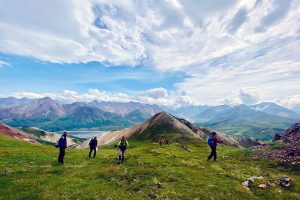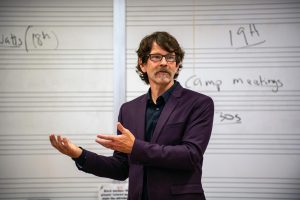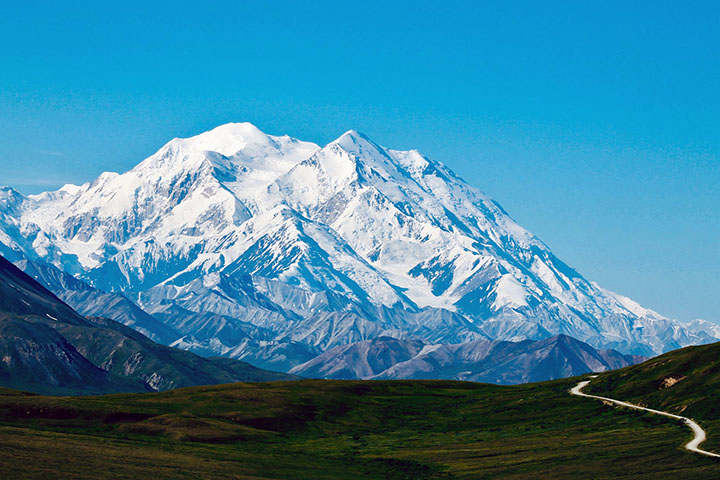Composing in the Wilderness
Worship Arts professor earns opportunity for creative work
August 30, 2021

Asbury University’s Worship Arts Professor Dr. Daniel Pinkston’s summer in Alaska for Composing in the Wilderness offers a glimpse — or a listen — into what Asbury faculty and staff accomplish outside of the classroom when students are on break. Pinkston’s faculty scholarship trip to Denali National Park, Fairbanks and Twin Bears Camp was part of an exclusive wilderness endeavor that culminated in the composition of a chamber piece.
Led by adventurer-composer Stephen Lias, Pinkston and eight other participants spent more than a week in backcountry Alaska in July and August accompanied by scientists and guides to gather ideas and inspiration to write individual chamber music pieces — in only three days — that were premiered at the Fairbanks Summer Arts Festival in August. Pinkston’s piece entitled Surge was inspired by the massive glaciers he encountered in Alaska, and part of the challenge was using only four instruments. He drew the bass clarinet, soprano saxophone, violin and cello out of a hat at the start of the expedition and could only use those four instruments in his composition.
Speaking about what drew him to this unconventional program, Pinkston said, “As an artist this is a remarkable opportunity… to spend significant time in the wilderness and then to create a piece of music that captures the majesty of the natural world is a challenge I look forward to. The fact that each composer only has three days to complete their piece is an added layer of challenge and adventure. It is a real honor to represent Asbury University in this program.”
 Now in its seventh year, the unique Composing in the Wilderness program selects composers after a rigorous application process that includes a physical fitness component. Pinkston has previously composed music in many styles and contexts, including two commissioned symphonies and two concertos, won a number of awards as a composer, and has numerous works in publication. Despite being a lifelong musician and composer, he said composing a chamber piece in only three days was very “intense.”
Now in its seventh year, the unique Composing in the Wilderness program selects composers after a rigorous application process that includes a physical fitness component. Pinkston has previously composed music in many styles and contexts, including two commissioned symphonies and two concertos, won a number of awards as a composer, and has numerous works in publication. Despite being a lifelong musician and composer, he said composing a chamber piece in only three days was very “intense.”
Surge is based on his experience witnessing a rare surging glacier, which happens when the pressure of melting ice builds up underneath the glacier in the springtime until it ultimately breaks through. He described his piece as icy cold, yet playful and energetic; mimicking the energy that God created in nature and even in seemingly immobile glaciers.
“To the human eye the glacier is not moving, it’s just this chunk of ice,” Dr. Pinkston reflected. “But it is changing and moving, and the energy that God uses in nature is just fascinating. We have our lives that we live, and we don’t think about how everything around us is teeming with life and energy.”
And from a musical perspective, he is excited to use the opportunity to teach students that God can use music anywhere.
“I try to teach students, if you’re a worship leader, that doesn’t mean that’s the only music you can do for God’s glory,” he said. “There’s all kinds of music you can do, whether you play jazz or blues music or rock and roll or whatever— and you can be a light for the Lord in those areas. And the idea of being inspired by God’s creation, and then expressing original art that is inspired by that – that’s been happening since the book of Genesis, but it’s important to remind that to our students.”
Dr. Pinkston said that through Composing in the Wilderness he built bridges with and earned invitations to compose with fellow college music professors around the U.S. in addition to other music industry professionals.
